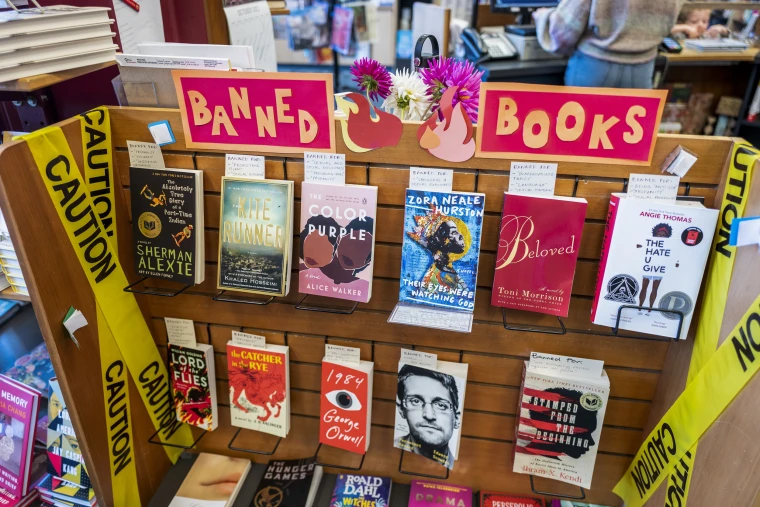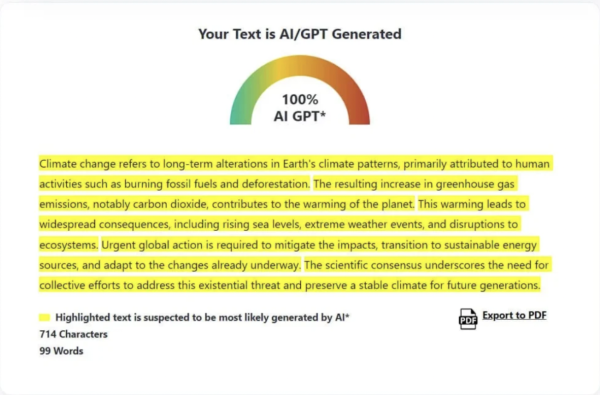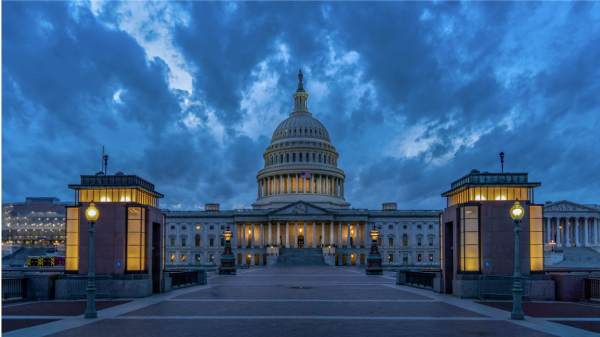Don’t Criticize What You Can’t Understand; The Damaging Effect of Book Bans in America
In 2017, the Harry Potter series were the most banned books in America. To this day, it is still banned from most Christian schools, especially in the South, because the novel is considered “too magical” and parents worry that language concerning “evil spirits and curses” is damaging for their children.
Democracy in America is slowly deteriorating. Government-imposed statutes and regulations are chipping away at our constitutionally founded rights and liberties. American forefathers fought for the ability to speak freely. Today, that freedom is being threatened. The First Amendment guarantees our freedom of speech, but book banning contradicts this notion, and instead confines young readers to a more narrow, parochial, and provincial set of facts. Reading is essential to learning because it allows students to explore new concepts and engage in foreign ways of thinking. Most importantly, learning relies on exploring multiple angles, despite the discomfort they may occasionally bring. This crucial educational element is difficult to achieve when book access is restricted to students.
According to the American Library Association (ALA), “Between January 1 and August 31, 2022, ALA documented 681 attempts to ban or restrict library resources, and 1,651 unique titles were targeted.” A book that one person doesn’t like another student might love. The latter student’s right to enjoy the book should not be precluded because of the former’s opinion. No school or public library should have the right to ban books because this limits people’s freedom to read. Although the United States has some limitations on information available to the public, and school-going children, in particular, the extent to which overprotective parents are attempting to restrict what their children may read is too far. Parents feel justified in heading efforts to ban books based on criteria such as language, sexual content, displays of racism, violence, and alternative non-traditional ideologies.
Although parents control what their children read, they do not have the right to undermine the hard work of educational professionals who have put together curated lists of books that are foundational to American youth education. The flawed logic in banning books is it does not eliminate the content. Our society is so technology-based nowadays so even if a book is “banned,” people can inevitably still find it on the internet. Censoring and banning books creates a false reality for children. These helicopter parents attempting to shelter their kids are missing the big picture. In what world is there not violence, sex, racism, and curse words—maybe a non-existent fantasy? These are all components of the real world, and parents who attempt to shield their kids from them may be doing more harm than good.
Additionally, the specific books in question are often used as an escape for children and can help them cope with real-world difficulties. Preventing a child from reading these books because of a disagreement with the text is not the solution. Some of the best-known novels in American history have been banned, such as The Catcher in the Rye, To Kill a Mockingbird, Adventures of Huckleberry Finn, The Handmaid’s Tale, Lord of the Flies, and even The Diary of Anne Frank. These are some of the most influential novels in American literature that continue to be celebrated today, despite whatever racist, misogynistic, xenophobic, or bigoted language the text may contain.
Books have an impact on the world because they force readers to face the exact problems that book-banning advocates intend to evade. Banned books allow readers to stand up for what they believe and interact with different perspectives of the world while finding out more about themselves. Sadly, some are advocating for the removal of books regarding LGBTQ+ people and people of color because they are alarmed by the content. South Carolina governor, Henry McMaste, is desperately attempting to ban LGBTQ+ themed books, including “Gender Queer: A Memoir,” by Maia Kobe. He claims this award-winning story about self-discovery is “obscene and pornographic.” More and more schools are now banning books LGBTQ+-themed books that are not “mainstream” enough for parents.
This effort not only bans books but also defines what is considered acceptable. As a result, anyone who relates, agrees, or is even intrigued by the banned books is unacceptable as well. Although some parents may not like or empathize with the characters and narratives in the books, they are not the ones going to school and they are not the ones navigating the burdens of adolescence. Discussions about sexuality, race, and gender are focal topics that kids need exposure to in order to develop properly.
If society bans every controversial book, our country risks becoming overly sanitized and losing the “rugged individualism” to which many conservatives cling. The unspoken yet now articulated hypocrisy is that the same political party that has its finger on the trigger of the Constitution when making Second Amendment arguments are tone deaf to any First Amendment assertions. This aptly makes me wonder if children in Uvalde, Texas are even allowed to read books about guns which they need to defend themselves, or if middle school girls impregnated as a consequence of rape and incest should be allowed to read about how other people in their situation can relate. I hope so.

Grade: 12
Years on Staff: 4
Why are you writing for the Flintridge Press?
I am writing for the Flintridge Press because it gives me an opportunity...







